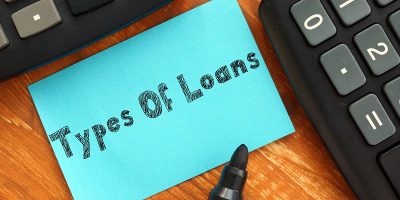The topic of debt often has negative connotations, especially in a conservative society such as Singapore. However, is it really all that bad?
Debunking the stigma: exploring the positive aspects of debt
Didn’t most major economies build on debt?
An open discussion on debt can help you understand the different kinds of debts and how they can be used to generate income. As contradicting as this may sound, it is indeed possible.
First of all, there are two main branches of personal debt – unsecured and secured debt.
Building creditworthiness and leveraging different types of debt
The main difference between the two is that secured debt requires some collateral to be pledged before it can be extended to a borrower, like in the case of a home loan or a car loan. Whereas unsecured debt does not require collateral and is usually based on the borrower’s creditworthiness.
To build creditworthiness, you need to show good credit history i.e., show that you are a good borrower who pays back loans on time. Without a credit history, financial institutions like banks cannot make a judgement about the chances of you defaulting on a loan and your ability to pay or service the loan promptly.
In this scenario, the borrowers would have a completely clean record, and no prior references to look at before the loan amount can be approved. Contrary to popular belief, this can hinder your chances of getting a loan or the amount that the institution might be willing to provide.
The changing value of money and making informed debt decisions
The time value of money denotes that the purchasing power of money decreases with rising inflation. The house that we own and live in, would have cost us barely a fraction of what we paid today if we had bought it 20 years ago. This suggests that the value of money depreciates with time if it is left alone without any form of growth opportunities.
Likewise, from the above example, if we had purchased a house 20 years ago, the amount we would’ve paid in total for financing the house (including interest charges) would not even be close to the amount we can sell it for today. That’s because of the exponential increase in house prices compared to the yearly inflation rate.
Evaluating assets and liabilities: not all debt is created equal
As such, it would’ve made perfect sense to take a loan and be in debt back then, since we would have acquired an asset that is worth so much more in terms of price and value today.
However, if we had purchased a car ten years ago, the value of the car would have depreciated yearly to a fraction of what we had bought it for. Does that mean we should never buy a car or own any form of liability? No, because you need to put into context the value that you derive from using the car or liability year-on-year.
Also, not all liabilities are equal to each other. Consider the example of a car again.
Understanding the difference between price and value
If a private hire driver incurs debt in the form of a loan for a car, say a Gojek or Grab loan, then it can act as an asset for the driver. That is because the car now can generate income for the Grab driver. As such, it is important to evaluate the role of the purchases you make since not all assets or liabilities are equal.
Remember, the price of something and the value of the same thing are two different things. You want to look for purchases from which you can derive high value in the long run. Something with a high price does not necessarily promise high value. A price simply reflects the current market conditions and does not bear meaning on long-term value. This is an important concept to understand when investing.
Hence, it is good to be in debt when you have done your budgeting and the debt can build on your creditworthiness or when it is used to finance an asset whose value will only increase in time.
Consulting a professional for debt management
To ensure your financial well-being and make informed decisions about debt, do seek guidance from a financial advisor. By consulting with an expert, you can gain a deeper understanding of debt and learn effective strategies to manage it.
When it comes to navigating the complexities of debt, speaking to a financial advisor can provide valuable insights tailored to your specific circumstances. They can help you explore various options and inform you about the different types of debt available that can help with your specific situation.
For expert advice and a comprehensive understanding of your financial choices, reach out to our experienced professionals at CashDirect.





